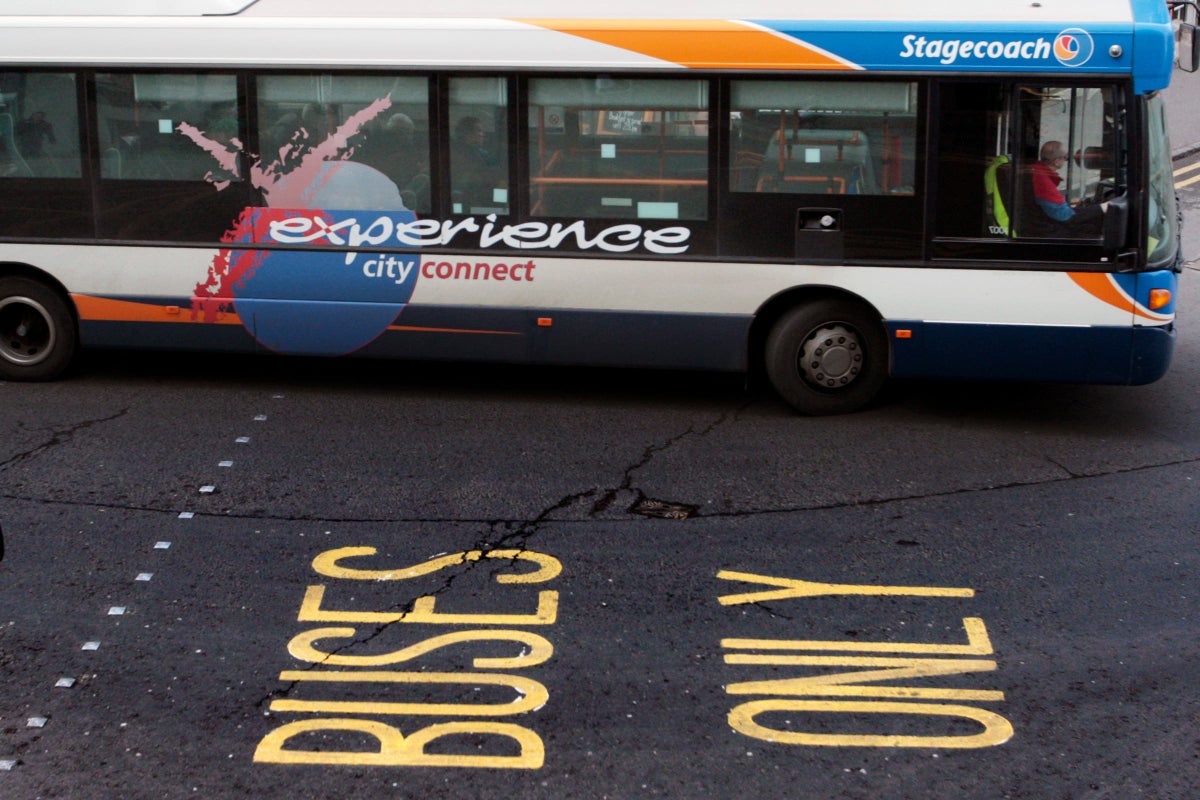Effective Strategies for Marketing to Local Customers and Building Community Trust

Key Takeaways

- Understanding Local Needs: Effective local marketing focuses on understanding the unique preferences of your community, which fosters trust and enhances customer loyalty.
- Community Engagement: Actively participating in local events and initiatives strengthens your brand presence and builds valuable relationships with customers.
- Local SEO Importance: Optimizing your online presence for local search is crucial; maintain an accurate Google My Business listing and use local keywords to boost visibility.
- Leveraging Social Media: Utilize social media platforms for direct communication with local audiences, sharing relevant content and encouraging interactions to enhance brand awareness.
- Collect Customer Feedback: Gather and respond to customer feedback to demonstrate value, improve services, and align offerings with community needs, solidifying customer loyalty.
- Utilizing Marketing Tools: Implement specialized tools like BrightLocal and Moz Local to analyze performance and streamline your local marketing efforts effectively.
In today’s competitive landscape, connecting with local customers is more crucial than ever. You might have the best product or service, but if your marketing strategy doesn’t resonate with your community, you’re missing out on valuable opportunities. Understanding the unique needs and preferences of your local audience can set you apart from the competition.
Local marketing isn’t just about geographical proximity; it’s about building relationships and fostering trust. By leveraging local insights and tailoring your approach, you can create targeted campaigns that speak directly to your audience. Whether you’re a small business owner or a marketer, mastering the art of local marketing can drive foot traffic, boost sales, and enhance brand loyalty in your community.
Understanding Local Marketing

Marketing to local customers is crucial for small businesses aiming to build strong community ties. A well-executed local marketing strategy enhances customer loyalty and drives foot traffic to your store or service.
Importance of Marketing to Local Customers
Local customers prefer engaging with businesses that understand their needs and preferences. Effective local marketing enhances customer retention by creating personalized experiences. By focusing on community engagement, you build trust and encourage word-of-mouth referrals. Engaging with local events or sponsoring community initiatives positions your business as a trusted partner, leading to increased sales and brand recognition.
Differences Between Local and Global Marketing
Local marketing focuses on a specific geographic area, while global marketing targets broader markets. In local marketing, you tailor your messaging, offerings, and campaigns to meet the unique needs of your community. You ensure your marketing strategy includes local SEO to improve visibility in search engine results relevant to local customers. In contrast, global marketing employs a standardized approach, often lacking personalization.
By understanding these differences, you can create a more effective marketing plan that maximizes your reach and fosters community loyalty. Adjusting budget allocations and project management strategies based on local market demands enhances operational efficiency and drives business growth.
Strategies for Effective Local Marketing

Implementing local marketing strategies enhances your connection with community customers and drives business growth. Focus on engaging local audiences through targeted efforts.
Utilizing Social Media for Local Engagement
Engaging local customers through social media is essential for small businesses. Create profiles on platforms like Facebook, Instagram, and Twitter to foster direct communication. Share community-focused content, such as local events or partnerships, to build relationships. Encourage customer interaction by responding to comments and messages promptly. Use location tags and hashtags to increase visibility among local audiences, making sure your business remains top-of-mind.
The Power of Local SEO
Optimizing for local SEO can significantly improve your online presence. Ensure your Google My Business listing is accurate and up-to-date, displaying critical information like hours, address, and contact details. Incorporate local keywords into your website content to rank higher in search results relevant to your area. Encourage customer feedback and reviews, as these boost credibility and visibility. Focus on creating high-quality, localized content that speaks to specific community interests and needs, which enhances customer acquisition and retention.
Building Relationships with Local Customers

Building relationships with local customers enhances customer retention and drives business growth. Engaging with your community and valuing customer feedback leads to strategic improvements and stronger brand loyalty. Here are some key strategies to consider:
Community Involvement and Branding
Participating in local events builds your brand presence. Sponsor community initiatives or host workshops that align with your business goals. Engage with local customers and showcase your commitment to the community. Doing so can differentiate your small business from competitors. For example, participate in local fairs or support local charities. You’ll increase visibility and foster trust among potential customers.
Leveraging Customer Feedback
Collecting customer feedback is crucial for enhancing customer service. Actively seek feedback through surveys, social media, or in-person conversations. Responding to suggestions shows that you value their opinions and are committed to continuous improvement. Implementing changes based on customer insights not only boosts satisfaction but also strengthens loyalty. For instance, if customers request specific products, adjust your inventory management accordingly. This approach can lead to better sales management and alignment with community needs.
Tools and Resources for Local Marketing

Effective local marketing requires utilizing the right tools and resources. These solutions optimize your efforts, enhance customer engagement, and ultimately drive business growth.
Essential Marketing Tools
Leverage marketing tools tailored for local outreach. Consider incorporating these platforms into your strategy:
- BrightLocal: This tool audits your local visibility, analyzes competitor performance, and generates insightful reports that showcase local SEO improvements, enhancing your marketing strategy.
- Moz Local: This software allows efficient local keyword research, competitor analysis, and location data management. It’s vital for understanding your business’s position in the local market.
- Synup: Maintain consistent and accurate business information across online platforms with Synup. This consistency enhances your credibility and is essential for retaining customers.
Each of these tools streamlines management, aids in decision-making, and can significantly improve your marketing success.
Analyzing Local Market Trends
Monitoring local market trends is essential for aligning your business strategy with community demands. Use data analysis tools to track customer preferences and behaviors. Consider these actionable steps:
- Identify seasonal trends affecting local consumption patterns.
- Engage with customer feedback to understand needs and facilitate improvements in your product offerings.
- Utilize business analytics software to evaluate competitors and adapt your marketing campaigns accordingly.
Local market trend analysis helps you make informed budgeting and financial planning decisions, ensuring your offerings resonate with customers. Engaging with these insights enhances customer service and aids in strategic planning for new initiatives.
Conclusion

Embracing local marketing can be a game-changer for your business. By focusing on community needs and preferences you can build strong relationships that foster trust and loyalty. Engaging with local events and utilizing social media allows you to connect with your audience on a personal level.
Remember that every interaction counts. By valuing customer feedback and adapting your strategies accordingly you can enhance satisfaction and drive growth. Leveraging tools and resources designed for local marketing will help you stay ahead of the competition.
Ultimately your commitment to understanding and serving your local customers will set you apart and create lasting success in your community.
Frequently Asked Questions

What is local marketing?
Local marketing refers to advertising efforts aimed specifically at a local audience. It focuses on targeting customers within a specific geographic area through tailored messages, promotions, and community engagement to build trust and enhance brand loyalty.
Why is local marketing important for small businesses?
Local marketing is crucial for small businesses as it helps create strong community ties. By understanding local needs and preferences, businesses can tailor their offerings, improve customer retention, and increase foot traffic, ultimately driving sales and growth.
How can I improve my local SEO?
To enhance local SEO, maintain accurate Google My Business listings, use local keywords, and create high-quality, localized content. Engage with customer feedback and strengthen your online presence to improve visibility in local search results.
What role does social media play in local marketing?
Social media is essential for local marketing as it enables direct communication with local customers. Platforms like Facebook, Instagram, and Twitter help businesses share community-focused content, engage followers, and foster relationships with their audience.
How can community involvement help my business?
Participating in local events and sponsoring initiatives builds brand presence and trust within the community. Such involvement enhances customer loyalty and positions your business as a beneficial partner, ultimately leading to increased sales and recognition.
What tools can assist with local marketing efforts?
Tools like BrightLocal, Moz Local, and Synup can optimize local marketing outreach and enhance customer engagement. These resources help analyze market trends and ensure your marketing strategies align with community demands.
How does local marketing differ from global marketing?
Local marketing tailors messaging and offerings to meet the specific needs of a geographic community, while global marketing uses standardized approaches that target a wider audience. Understanding these differences can lead to more effective marketing strategies.
How can customer feedback improve my local marketing strategy?
Valuing and acting on customer feedback helps businesses align better with community needs. Through surveys and direct communication, businesses can make strategic adjustments that enhance satisfaction and foster stronger loyalty among customers.
Image Via Envato
This article, "Effective Strategies for Marketing to Local Customers and Building Community Trust" was first published on Small Business Trends
What's Your Reaction?
 Like
0
Like
0
 Dislike
0
Dislike
0
 Love
0
Love
0
 Funny
0
Funny
0
 Angry
0
Angry
0
 Sad
0
Sad
0
 Wow
0
Wow
0





























































































